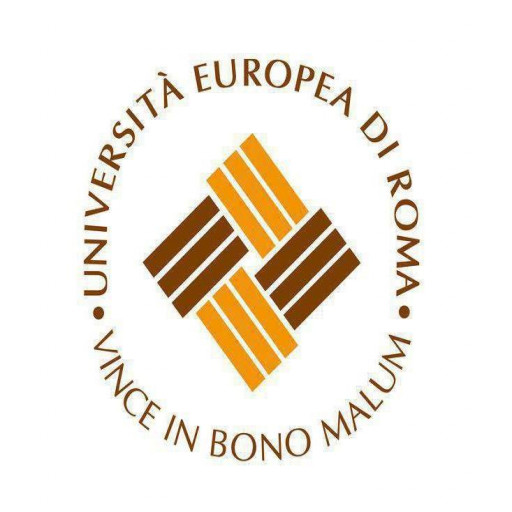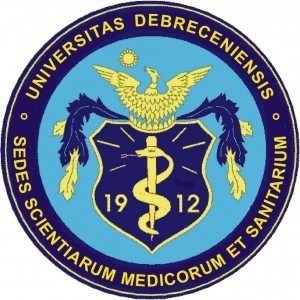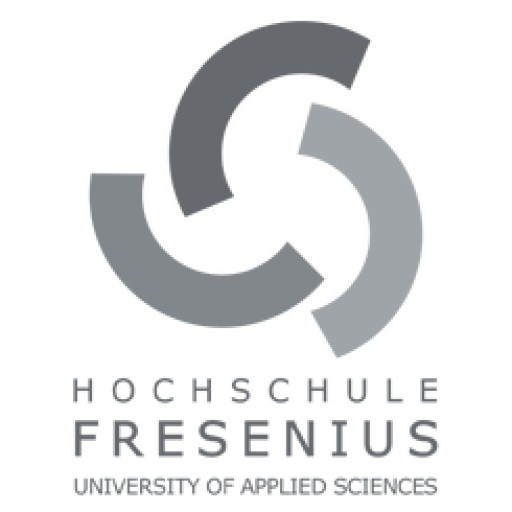The Economics Department is one of over 30 programs within the Graduate School of Arts and Sciences. The Ph.D. program in Economics provides training for careers in both teaching and research by emphasizing theory, quantitative methods, and early involvement in research.
The success of the program is reflected in our graduates' job placements, which include highly ranked universities, such as Chicago, Columbia, UCLA, Cornell, Penn State, as well as excellent undergraduate institutions, such as Carleton and Brandeis. In a recent survey, UVA ranked fourteenth among graduate programs in academic placement. Many students also find summer or permanent employment in the nearby Washington area, e.g., at the International Monetary Fund, the World Bank, the Federal Reserve Board of Governors, and the Congressional Budget Office.
About twenty students enter our program each year. At any given time there are approximately 80-90 students in residence. Classes are small and students are able to work closely with faculty. Graduate students are provided with two computer labs, both equipped with up-to-date PCs and a wide selection of software.
In addition to taking the core courses in microeconomics, macroeconomics, and econometrics, doctoral students choose two fields of specialization from: Industrial Organization, International Economics, Macroeconomics, Public Economics, Econometrics, Theory, and Labor. Virtually all graded courses can be completed by the end of the second year, so that students can begin dissertation research at an early stage (in the summer after the second year).
During the third and fourth years, students are active in one or more of the regularly scheduled workshops: Theory, Applied Microeconomics, Macroeconomics, Public Economics, Econometrics, Development, and International Economics.
Successful completion of 72 semester hours of course work at the graduate level. At least 24 hours must be graded course work, and no more than 48 of the 72 can be comprised of Non-topical Research. Upon approval of the Department's Director of Graduate Studies (hereafter DGS), as many as six semester hours may be taken outside the Department of Economics in related fields, if they contribute appropriately to his or her program.
Core Courses — Every prospective candidate must successfully complete the following Core courses:
- Economics 7010: Microeconomic Theory I (4 credits)
- Economics 7030: Microeconomic Theory II (4 credits)
- Economics 7020: Macroeconomics Theory I (4 credits)
- Economics 7040: Macroeconomics Theory II (4 credits)
- Economics 7710: Econometrics I (4 credits)
- Economics 7720: Econometrics II (4 credits)
- Economics 8010: Microeconomic Theory III (4 credits)
- Plus, either
- Economics 8710: Cross Section Econometrics (3 credits), or
- Economics 8720: Time Series Econometrics (3 credits)
Mathematics — Before the second year of graduate study, competence in mathematics must be demonstrated by successfully completing Economics 5090 or a course deemed equivalent by the Director of Graduate Studies.
Other Required Courses — The prospective candidate must successfully complete:
- Economics 8991: Research Methods in Economics
Workshops — Third-year students shall attend for one year a non-credit workshop or seminar course from a list compiled by the Director of Graduate Studies. Each student must register their choice with the DGS by the first day of classes of the 3rd year. Failure to do so will be considered not making satisfactory progress towards the Ph.D. degree.
Electives — Additional courses which are not needed to meet any of the requirements described above may be taken as electives to attain the required total for graduation.
Transfer of Credit — The DGS may designate any course requirement as having been met by satisfactory performance in equivalent graduate courses taken at other universities. However, this is a rare occurrence.
Unsatisfactory Progress— Students may not be allowed to continue in the program if they are not making satisfactory progress toward the degree. As defined by the Graduate School (see the Graduate Record, Grades), receipt of a grade below B-, a yearly grade average less than 3.0, or failure to pass preliminary exams on schedule will be considered unsatisfactory progress.
Maximum Period of Study — All work must be completed within seven years from the first day of study in the degree program. Exceptions can be granted only by the Graduate Committee of the Graduate School upon petition by the student. The petition should be accompanied by details of both progress to date, and a written timeline for final steps. The DGS normally will support a student's petition only if progress is being made (as judged by his or her dissertation committee) toward completion of the dissertation. If the student has been inactive or making little progress after seven years, he or she will be required to repeat the Core examinations before continuing.
Fields of concentration
In addition to a summer field paper, the student must earn grades of B- or better in each of two Fields of concentration. Two courses will be required for each Field, except as otherwise designated. The Fields of concentration are listed below; see Graduate Course Offerings for course descriptions. Ordinarily, the starred (*) courses are those required for a Field. Unmarked courses may be useful adjuncts to Field preparation. However, because a few of these courses are taught infrequently, the Department sometimes permits students to satisfy a Field requirement by offering reading courses. Consult the DGS for details.
INDUSTRIAL ORGANIZATION
- Economics 8170: Industrial Organization I*
- Economics 8180: Industrial Organization II*
INTERNATIONAL ECONOMICS
- Economics 8210: International Trade Theory*
- Economics 8220: International Finance*
MACRO ECONOMICS
- Economics 8350: Macroeconomic Theory*
- Economics 8360: Empirical Macroeconomics*
- Economics 8720: Time Series Econometrics
(While not a Field course, Time Series Econometrics is a prerequisite for anyone taking this Field.)
PUBLIC ECONOMICS
- Economics 8310: Public Economics I*
- Economics 8320: Public Economics II*
ECONOMETRICS
- Economics 8710: Cross Section Econometrics*
- Economics 8720: Time Series Econometrics*
(For other relevant courses in the Mathematics Department; consult appropriate faculty members.)
ECONOMIC DEVELOPMENT
- Economics 8510: Topics in Growth Theory*
- Economics 8190: Economic Development of Underdeveloped Areas* (Cross-listed with Economics 8160)
(Anyone taking this Field is advised to take Economics 8210 (International Trade Theory).
LABOR ECONOMICS
- Economics 8150: Economics of the Labor Markets*
- Economics 8160: Seminar in Labor Economics and Development*
- Economics 8710: Cross Section Analysis
(While not a Field course itself, Cross Section Analysis is a prerequisite for anyone pursuing this Field.)
To qualify for admission, you need a strong record in courses such as intermediate microeconomics and macroeconomics, calculus, and statistics. However, an economics major is not required.
All application materials must be submitted no later than midnight on January 15. Our Admissions and Financial Aid Committee begins to review applications in early February. Admission and aid offers typically begin in late February. We do maintain a wait list which is very often active through April 15th.
Recommended mathematics preparation includes:
- Advanced Calculus
- Linear Algebra
- Mathematical Statistics (taught in a Math Department) or Econometrics
Additional math courses, such as real analysis or differential equations, improve your chances of success in the program.
Applicants must provide:
- Unofficial transcripts - official transcripts will be required if you are admitted
- Two letters of recommendation
- Statement of purpose
- GRE general test scores
- CV or resume
Please use the institutional code 5820 when reporting test scores; no department code is necessary.
The GRE General Test is the only acceptable exam. The GRE advanced test in economics is not required, and we cannot accept GMAT scores. Most admitted students have earned a GRE quantitative score above or near the 90th percentile.
Writing samples and research examples are not required and, if submitted, cannot be reviewed. A statement of purpose is required; please do not confuse it with a writing sample.
The TOEFL (Test of English as a Foreign Language) exam or the IELTS (International English Language Testing System) exam is required for international students whose native language is not English. Required TOEFL scores are: 600 (paper-based test), 250 (computer-based test), 90 (internet-based test.) An IELTS score of 7.0 is also acceptable proof of English proficiency. Test scores are valid for two years from the test date.
A master's degree is not a prerequisite for admission. Our students can earn a master's while working towards their Ph.D.; however, the Department does not offer admission to a terminal master's degree program. Students who are primarily interested in a terminal M.A. degree in economics are advised to consider other universities with more applied master's level courses. A list of U.S. institutions offering graduate degrees in economics is available here.
Want to improve your English level for admission?
Prepare for the program requirements with English Online by the British Council.
- ✔️ Flexible study schedule
- ✔️ Experienced teachers
- ✔️ Certificate upon completion
📘 Recommended for students with an IELTS level of 6.0 or below.
Scholarships
All students admitted to the program for Fall 2016 are offered a five-year aid package of $24,000 per year ($20,000 during the academic year, and $4,000 during the summer). Also included are full funding for tuition, enrollment fees, and the health insurance premium for single-person coverage through the University. This award package, comprised of fellowships and assistantships, will be renewed up to a total of five years, contingent on satisfactory academic performance, successful fulfillment of assigned duties as a teaching or research assistant, and compliance with all applicable University, School, and departmental policies, including, but not limited to, those governing student conduct, academics, and Honor.
In addition, the Graduate School administers a competitive fellowship program to support a sixth year of study for doctoral students who are poised to complete distinguished dissertations and enter the job market. In 2016-17, twenty-five such fellowships will be offered, and the Graduate School plans to increase this number significantly in the coming years.
The faculty regards training in teaching as an essential aspect of graduate education, although students will not be expected to teach during their first year of study. Duties as a funded student will include appointments as a Graduate Teaching Assistant in years two through five, and involve approximately ten hours of effort per week. Students in years four and five may be offered the opportunity to serve as instructors.
Many of our fifth-year students are awarded Bankard Dissertation Fellowships that reduce or eliminate teaching responsibilities during that year. A limited number of teaching and research assistantships are available to students who have exhausted the five years of funding offered upon admission.
Our Department strongly supports, and adheres to, the Council of Graduate Schools' Resolution regarding the April 15 decision deadline, which says "Students are under no obligation to respond to offers of financial support prior to April 15; earlier deadlines for the acceptance of such offers violate the intent of this Resolution."











